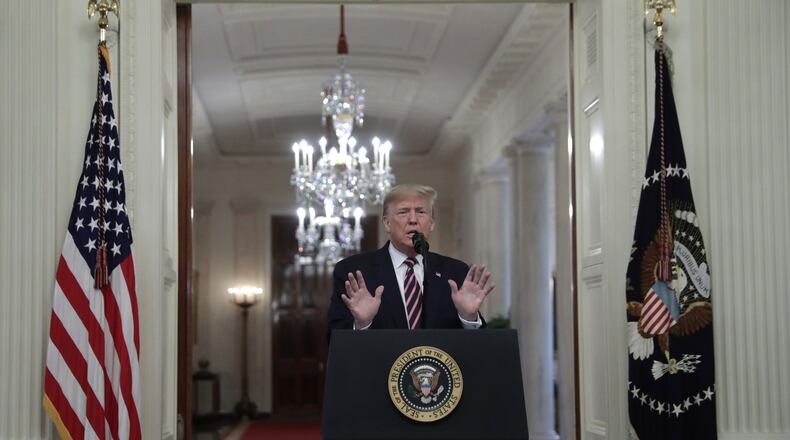This week, the U.S. Senate turned the page on one of the most troubling chapters in our country’s history. Democrats in the U.S. House of Representatives attempted to use impeachment as a partisan political weapon. The Senate prevented this from happening.
From day one, House Democrats were only concerned with overturning the 2016 election and influencing the 2020 election.
Democrat House manager Adam Schiff had a consistent message: We can’t trust elections, that’s why we have impeachment.
In America, we believe in due process. We believe in the rule of law. We believe an individual is innocent until proven guilty.
Throughout the impeachment process, however, President Trump was denied basic due process.
President Trump was denied the right to have counsel present at the hearings, cross-examine witnesses, present his own witnesses, see the evidence, and face his accuser.
House Democrats spent just 112 days investigating, compared to almost 400 days spent on President Clinton’s impeachment trial.
When they were done investigating, it was clear that both articles of impeachment, abuse of power and obstruction of Congress, should have been dismissed right away by the Senate. Neither one rose to the level of impeachment.
Article II, Section 3 of the Constitution explicitly lists these reasons for impeaching a president: treason, bribery, high crimes and misdemeanors — another word for crime.
The last three presidents to face impeachment had all been charged with a crime. President Trump is the first president ever to be impeached without committing a crime.
The first impeachment article, abuse of power, alleges President Trump, for his own political gain, asked Ukrainian President Zelensky to investigate corruption.
The president has the responsibility to expose corruption. He had every right to be concerned about Hunter Biden’s $1 million per year board membership at Burisma. He had every right to be concerned about Vice President Biden’s efforts to fire the very prosecutor who was investigating Burisma.
Democrats failed to prove this request was done for political gain.
Regarding the second article, obstruction of Congress, every president has the right to claim executive privilege to protect our national interests and the separation of powers.
To claim that executive privilege is obstruction of Congress would fundamentally weaken this important right for future presidents.
After presenting these inappropriate articles of impeachment, House Democrats then demanded the Senate call additional witnesses that they had not called during the House investigation.
However, the Constitution is clear: it is the House’s responsibility to conduct the investigation. The Senate is charged to rule on the articles and evidence presented.
That’s because in the House, committees can investigate while the rest of the chamber works on legislation. The Senate, however, is by law required to conduct a formal impeachment hearing. This requires the Senate to stop working on any legislation and effectively shut down.
If House Democrats wanted new witnesses, they could have pursued subpoenas in court during the House investigation. They chose not to. They were in such a rush to impeach President Trump before Christmas that they sent the Senate an incomplete case.
In the Clinton impeachment trial, three witnesses were called to the Senate for clarification. However, those witnesses had already testified before the House.
It is simply not the Senate’s constitutional duty to call additional witnesses. That’s the House’s job.
After 17 House witnesses, over 28,000 pages of documents, and 193 videos of witness testimony, we had heard enough.
The Senate acquitted President Trump not only because the two articles presented were illegitimate and did not qualify for impeachment, but also because there was zero evidence of wrongdoing. You can’t just say someone is guilty. You must prove it. The House did not do that.
This was a purely partisan effort in the House. The Founders clearly warned against partisan impeachment. Even Jerry Nadler agreed in 1998, when he said, “There must never be a narrowly voted impeachment or an impeachment substantially supported by one of our major political parties and largely opposed by the other.”
The Senate’s role has always been to hold the House of Representatives accountable. We did that this week. Now we can get back to work for the American people.
David Perdue is the senior U.S. Senator for Georgia.
About the Author




